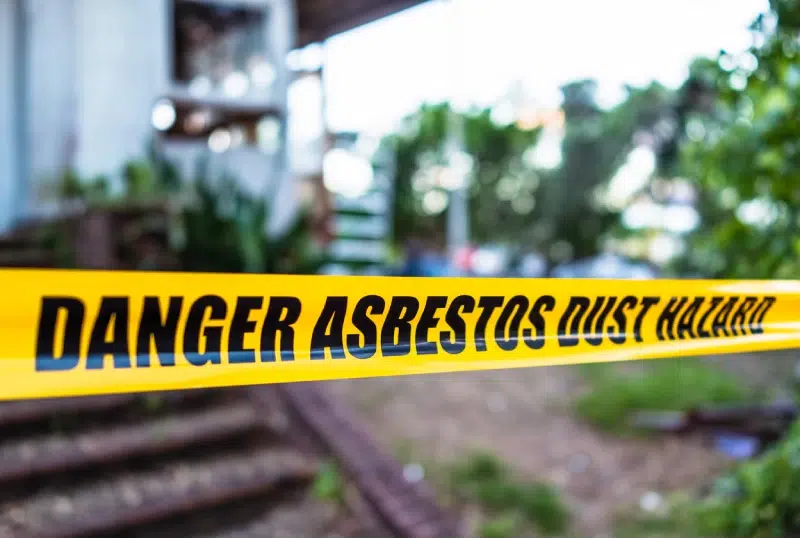Asbestos and the Warranty of Habitabilitys
Out of the many repair issues that can affect a tenant, one of the most dangerous is asbestos. Asbestos is a common building material found in older dwellings. It is found in ceilings, paint, insulation and a large number of other common products. When asbestos is airborne or friable, it is microscopic in size and not visible to the naked eye. Even brief exposure to asbestos can cause cancers that usually do not show up until fifteen to forty years after exposure. The risk of dangerous exposure is greatest around renovation work, water damage, deteriorating walls, or a broken heating system. The true danger is that it is invisible.
California Tenant Lawyerss
Tobener Ravenscroft LLP is the leading tenant rights law firm in California and has been in business for over twenty years. The firm serves tenants in California and focuses on wrongful evictions, intractable repair issues, landlord harassment, tenant discrimination, landlord sexual harassment, and landlord-caused injuries.
Unfortunately for renters, California courts have not yet emphatically defined asbestos as an actionable health hazard. Out-of-state and federal courts have found that airborne asbestos violates a tenant’s implied right to have a habitable premises. Mann v. Pierce, 803 F.2d 1552 (11th Cir. 1986) (finding warranty of habitability covers crumbling ceiling tiles containing asbestos) and Molloy v. Li, 235 A.D. 2d 342 (NY 1997) (allowing recovery for asbestos in heating system and clumps in rug). By extension, it is extremely likely that a California court would treat friable asbestos as a breach of the warranty of habitability. Green v. Superior Court, 10 Cal. 3d 616, 638 (1974). A landlord who ignores friable asbestos can be held liable for back and future rent, emotional distress damages, medical bills, and attorney fees. Id.
Generally, a tenant should take the following steps if they fear asbestos in their living space: 1) arrange for reliable testing; 2) give written notice to the landlord with a copy of the test results, asking for immediate remediation; and 3) prepare to file an action against the landlord if the asbestos is not remediated.
It is important to hire a qualified private company to conduct the test. A tenant must use caution in testing for toxins as courts will exclude tests not following sound scientific methodology. Geffcken v. D’Andrea, 137 Cal. App. 4th 1298 (2006).
A landlord must give renters notice of the presence of friable asbestos on property within fifteen days of receiving knowledge of the asbestos-containing materials. Health and Safety Code § 25915.5. A landlord who fails to comply with this notice requirement is guilty of a misdemeanor punishable by up to one year in jail and a fine of $1,000. Id.
A landlord must exercise due diligence in completing repairs and maintenance to minimize exposure to asbestos. San Francisco Rent Ordinance § 37.10B. This means hiring licensed professionals. Asbestos is very fragile and only professionals with proper equipment and protection can remove it.
Commercial tenants have protections against asbestos as well, but the burden of remediation may not always be on the landlord. Even where a commercial lease provides that a tenant must “remediate all asbestos”, the courts will not automatically hold a tenant liable for remediation, rather will look at the totality of the circumstances, including length of lease, terms of lease, experience of tenant in commercial leasing, opportunity by tenant to do testing, cost of remediation versus monthly rent, pre-lease disclosures by landlord, and attorney and broker involvement in lease negotiation. Brown v. Green, 8 Cal. 4th 812 (1994) (finding lessee liable); see also Hayden v. Schwartz, 8 Cal. 4th 836 (1994) (finding lessor liable).
There is a dearth of California cases on the issue of asbestos removal in commercial leases. All of the following out-of-state cases have held landlords liable for removal of asbestos in commercial leases: Lazell v. Stone, 123 S.W.3d 6 (Tex. App. 1st Dist. 2003); Wolf v. 2539 Realty Associates, 161 A.D.2d 11 (N.Y.1990); Linden Boulevard, L.P. v. Elota Realty Co., 196 A.D.2d 808 (1993) and Sun Insurance Services, Inc. v. 260 Peachtree Street, Inc. , 192 Ga. App. 482 (1989).




